OB-GYN Chiefs: Why I Care for Women
NewYork-Presbyterian’s OB-GYN chiefs share the top things women need to know about their health today.
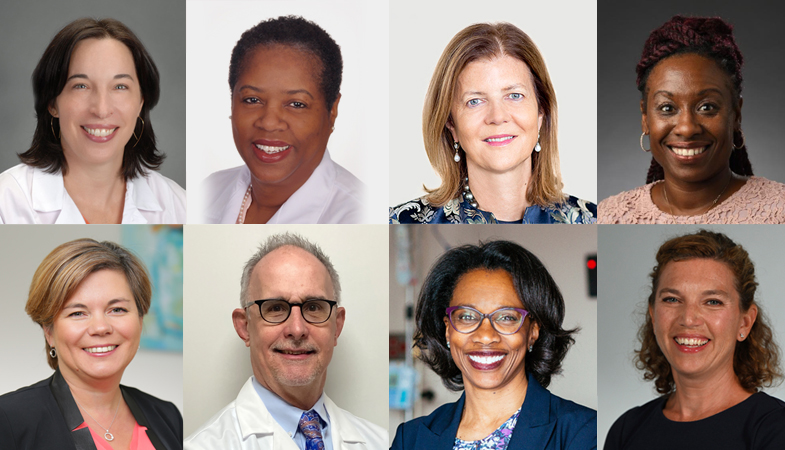

Whether it’s the joy of delivering a baby for the first time as a medical student or the despair of seeing a woman suffer a serious pregnancy complication, NewYork-Presbyterian’s OB-GYN chiefs all faced defining moments that drive their work.
Health Matters asked the OB-GYN chiefs from NewYork-Presbyterian hospitals to share why they’ve dedicated their careers to caring for women and what they want women to know about their health today.
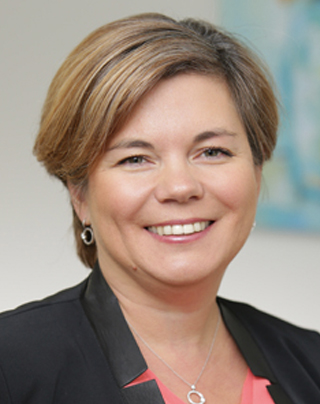
Dr. Anna Burgansky, chief of the Division of General Obstetrics and Gynecology at NewYork-Presbyterian Lawrence Hospital and assistant professor of obstetrics and gynecology at Columbia University Vagelos College of Physicians and Surgeons
Why I care for women: The most rewarding aspect for me is the ability to create a lifelong connection with my patients. From teenage years through adulthood, I help them plan a family, guide them through pregnancy and childbirth, and keep them in good health for many years after. One of the defining moments in my career was caring for a patient in the aftermath of a severe complication. The patient had preeclampsia with severe hypertension, which caused her to have an acute stroke. She had an emergency cesarean and the baby did well. The patient, however, required emergency brain surgery, a long ICU stay, and extensive rehabilitation. Seeing the long-term effects on the patient and her family was devastating. The case sparked my interest in preventable maternal mortality and morbidities and led to my involvement in 2015 in the Safe Motherhood Initiative, which works to reduce maternal deaths and complications in hospitals across New York State. Today, I continue this work locally and regionally, focusing on improving clinical guidelines and standardizing the way clinical teams respond to common obstetric emergencies.
Words of wisdom: There is strong scientific evidence that pregnancy is an important opportunity to predict women’s future health risks. We know that women with common pregnancy-related complications, such as preeclampsia, preterm birth, low fetal weight, placental abruption, and diabetes, are at significantly increased risk of cardiovascular disease later in life. For these women, regular care with their primary care provider, lifestyle modification, regular screening, and early intervention are critically important. Women need to know about their future health risks and use every opportunity to prevent chronic illness and disability.
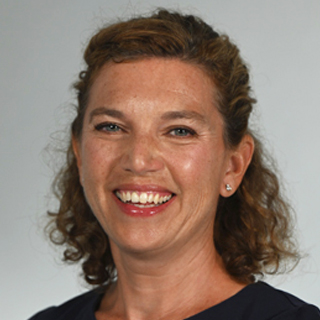
Dr. Julia Cron, chief of the Department of Obstetrics and Gynecology at NewYork-Presbyterian Lower Manhattan Hospital and assistant professor of clinical obstetrics and gynecology at Weill Cornell Medicine.
Why I care for women: I was introduced to the amazing field of OB-GYN when I worked as a program assistant for the American College of Obstetricians and Gynecologists (ACOG) in Washington, D.C. I saw the intersection of individual patient care and women’s health on a more global scale, and it became clear to me that advocacy and women’s health care go hand in hand. Throughout my career, I have seen the importance of caring for patients through transitions, and as an OB-GYN, I have had first-hand experience assisting women through two important transitions: – the transition from adolescence to young adulthood through my work in pediatric and adolescent gynecology, and the transition into motherhood through my work as an obstetrician.
Words of wisdom: I would urge women to recognize the importance of advocacy for themselves as individuals, for those under their care (children, parents, and other loved ones), and for others whose voices are not always heard. We are at a critical time in shaping the priorities of our healthcare system; and we must make sure that women advocate for themselves and others, so that our healthcare system can provide the compassionate, equitable, evidence-based care that all people deserve.
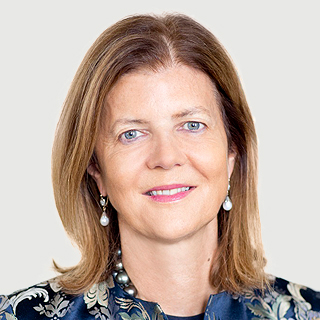
Dr. Mary D’Alton, obstetrician and gynecologist-in-chief at NewYork-Presbyterian/Columbia University Irving Medical Center and chair of the Department of Obstetrics and Gynecology at Columbia University Vagelos College of Physicians and Surgeons
Why I care for women: Women are the heart and anchor of a family, and caring for them is a tremendous privilege. I entered the subspecialty of maternal-fetal medicine (MFM), which focuses on high-risk pregnancies, at a time when we were experiencing phenomenal innovation in ultrasound technology. These innovations allowed us to put eyes on the fetus during pregnancy, make diagnoses, and even develop in utero therapies like never before. It was a very exciting time, but I noticed that we were not seeing this same progress and innovation in maternal health. And, in fact, maternal mortality and morbidity (complications) were increasing in the United States. Since 2010, I’ve focused on mom — how do we identify her risk, how do we mitigate it, and what improvements to research, education, and clinical care are needed? That shift to focusing on the “M” in “MFM” was definitely a defining moment for me, one which I will forever be grateful occurred.
Words of wisdom: The most important thing for women to know about their health is that they should listen to themselves and be sure that their providers are listening to them. My father, who was the general practitioner in the small town in Ireland I grew up in, always said, “If you want to know what’s wrong with a patient, ask her.” Women know their bodies, and we, as providers, need to be sure that we are including them as integral members of their care team.
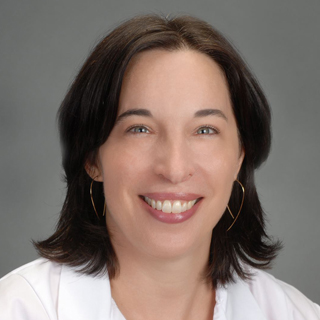
Dr. Tracy Bohn Hemmerdinger, chief of the Division of Obstetrics and Gynecology at NewYork-Presbyterian Hudson Valley Hospital and assistant professor of obstetrics and gynecology at Columbia University Vagelos College of Physicians and Surgeons
Why I care for women: Women’s health and well-being has always been a focus of mine. I was surrounded by strong, dominant, and capable women for as long as I can remember. My sister and I were raised by our single mother and spent a lot of time with our aunt and grandmother. I was told from a very young age that I could do anything I put my mind to and that I should be self-sufficient and be able to depend on myself. I strive to help all women achieve these goals and feel themselves cared for and supported and safe while they care for all the others around them, as women often do.
Words of wisdom: Advocate for yourself and ask questions. You know your body and mind better than anyone else. We in the healthcare field are here to assist you in the way you need and desire. You deserve top-notch, kind, and respectful care at every step. It’s our job to provide it.
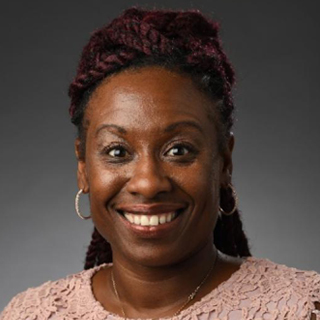
Dr. Anita Holman, chief of the Division of Obstetrics and Gynecology at NewYork-Presbyterian Allen Hospital and assistant professor of obstetrics and gynecology at Columbia University Vagelos College of Physicians and Surgeons
Why I care for women: Upon entering medical school, I was convinced that I would become a pediatrician. During my OB-GYN rotation, I attended a vaginal delivery, and my entire world changed. Supporting women through the highs of life like the birthing experience as well as lows such as cancer diagnoses, domestic violence, and postpartum depression is what continues to drive and motivate me. I also am committed to serving women who look like me. I am passionate about the urgent need to decrease the high rates of maternal morbidity and mortality seen among women of color across New York City and the United States and focus on working collaboratively with my team to provide the very best, highest-quality care that every woman deserves.
Words of wisdom: Be proactive with your health and trust yourself. I learned this lesson intimately when my mom was diagnosed with breast cancer. She felt a lump while getting dressed and sought medical attention because she knew something was wrong. She was fortunate to have doctors who immediately addressed her concerns, and 26 years later she is alive and well. Find physicians whom you trust, be open and honest with them about your thoughts and feelings, and develop a relationship with them. I strongly believe these are the keys to timely diagnosis and maintaining good health.
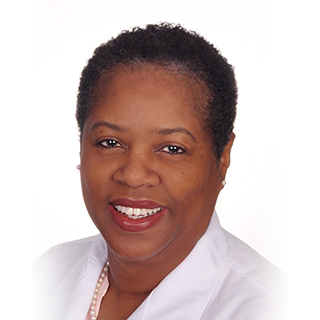
Dr. Denise Howard, chief of the Department of Obstetrics and Gynecology at NewYork-Presbyterian Brooklyn Methodist Hospital and assistant professor of clinical obstetrics and gynecology at Weill Cornell Medicine
Why I care for women: I decided to become an OB-GYN as a preteen, and although I considered other specialties briefly, I knew providing care for women would be a rewarding career path. Growing up in a working-class family in rural Mississippi, I saw how readily the needs of women took a back seat to those of others. The same pattern exists in healthcare. I care for women because I see myself, my mother, my sisters, my grandmothers, my aunts, and my daughter in every patient, and I want them to receive the best possible care. Being an OB-GYN gives me the opportunity to advocate for women, making sure their care is a top priority. It is a privilege to have a position where I can help guide quality care for women, and I feel that the greatest impact can be had in preventive healthcare services.
Words of wisdom: Do your homework! Learn about your body, know your health history, and educate yourself on your health risks. Come to your doctor prepared to get the most out of the visit — ask questions, keep notes, and be an active participant in your care. You are your best advocate, and being engaged is the best way to receive ideal care.
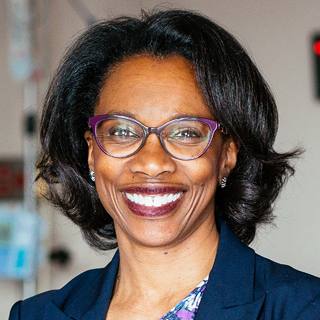
Dr. Laura Riley, obstetrician and gynecologist-in-chief at NewYork-Presbyterian/Weill Cornell Medical Center and chair of the Department of Obstetrics and Gynecology at Weill Cornell Medicine
Why I care for women: I became interested in women’s health in medical school after my first rotation in obstetrics and gynecology and delivering my very first baby. It was a low-risk, uncomplicated delivery and the family allowed me to really participate as a medical student in what was clearly a personal and amazing experience for them. I realized at that moment that I wanted to be part of that experience. And then, over the course of medical school and residency I started to see all the different things that can go awry, and I knew I wanted to work to do everything I could to help women have that perfect birth experience like the one I first witnessed.
Words of wisdom: Advancing maternal age is no joke. As infertility therapy advances, women who previously never would have thought of getting pregnant are now pregnant, and we need to be able to take care of them. Overall, women need to recognize that their own health is incredibly important as they are thinking about the health of everybody else. They think about the health of their partner and their children and in that, they sometimes forget about their own health. Prevention is just as important for a woman’s health as it is for her child getting vaccinated or her husband getting his blood pressure checked.
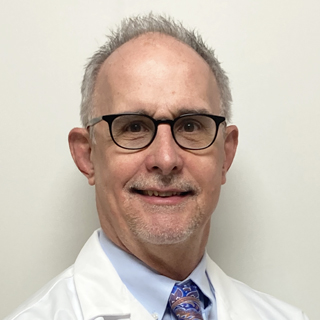
Dr. Daniel Skupski, chief of the Department of Obstetrics and Gynecology at NewYork-Presbyterian Queens and professor of obstetrics and gynecology at Weill Cornell Medicine
Why I care for women: I am sparked by being able to help a woman through a painful, yet beautiful event — the birth of a baby — and I am sustained by trying to make it even safer, especially when high-risk factors are involved. Women are the strength of society, but have been undervalued. I want to help right that balance — by helping women stay healthy.
Words of wisdom: When it comes to your health, don’t settle. Ask questions and keep asking them — you get better care when you do. I love answering questions for just this reason. Use the power of the internet to help guide your questions about whatever problems may arise during your care. Physicians have a huge amount of knowledge and compassion. When you find one whom you trust, form an alliance — and keep asking questions!
Learn more about women’s health and women’s gynecological health at NewYork-Presbyterian.

